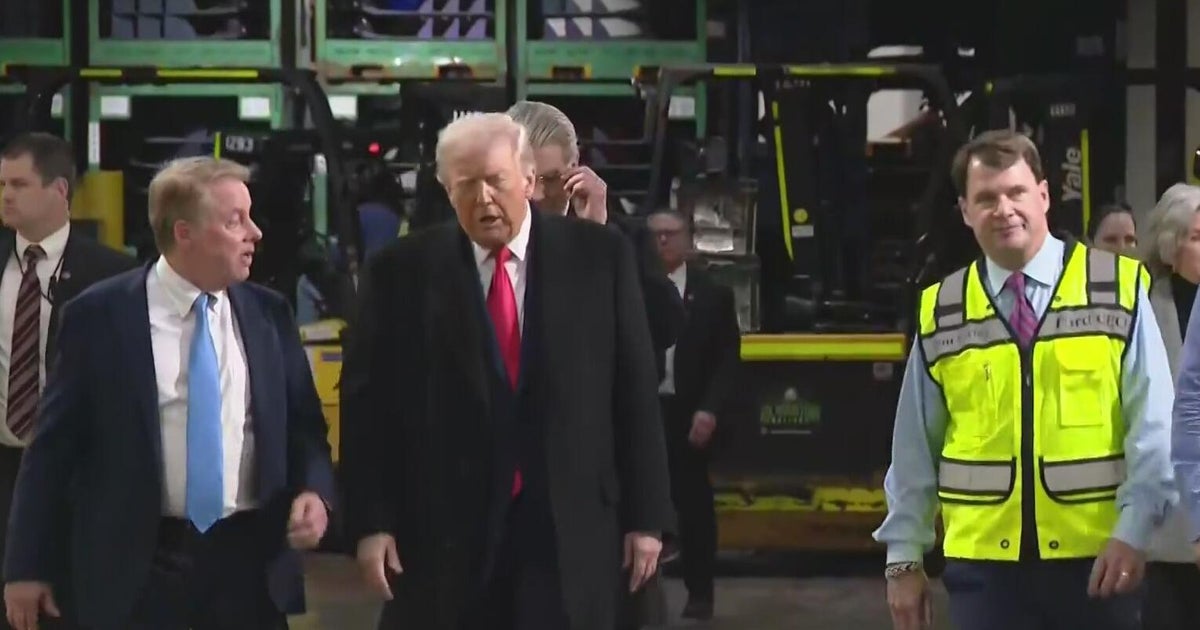Calif. Summit Seeks To Join Jobs With Climate Regulations
DAVIS, Calif. (AP) -- Unlocking economic prosperity in a low-carbon world was a key theme Monday at a climate-change summit headlined by Gov. Arnold Schwarzenegger, who is among regional government leaders seeking to join private investors with green technology projects.
The outgoing governor of California has been bringing together local government leaders from around the world for three years to reduce greenhouse gas emissions after saying the U.S. and other countries failed to take the lead.
"I know that together we can usher in a new era and build a cleaner and brighter, more prosperous future," Schwarzenegger told attendees at his third and final climate summit. "So, I say let's do it."
The two-day summit at the University of California, Davis, just west of Sacramento, drew more than 1,500 people from more than 80 countries.
Many of those who spoke during the opening session said state and provincial leaders want to tap private investment to generate jobs in the alternative-energy field while reducing emissions blamed for warming the planet.
Profiting from the emerging green economy remains a work in progress, especially with many countries still struggling to emerge from recession and a severe credit crisis that has hampered lending.
"It's time for us to recognize this is a significant economic challenge as well as an environmental challenge," said British Columbia Premier Gordon Campbell.
British Columbia has imposed a carbon tax that promises to lower the personal and corporate income taxes for residents and small businesses in the province. For example, money collected from taxing polluting companies means small businesses there will not pay any taxes on the first $500,000 of their income by 2012, Campbell said.
Michigan, which has been hit hard by the loss of manufacturing jobs, is aggressively pursuing green-tech companies. California is working with the federal government for what will be the largest solar and wind farms in the world.
These kinds of efforts can not only help the environment but bring jobs to places where governments act as partners with private companies, Michigan Gov. Jennifer Granholm said.
Granholm and three other Democratic governors -- Jim Doyle of Wisconsin, Ted Kulongoski of Oregon and Chris Gregoire of Washington -- are co-sponsors of the summit.
Tapping green investment is the underlying goal of a new organization Schwarzenegger and leaders from more than 20 countries are expected to announce at the summit on Tuesday, said Linda Adams, secretary of the California Environmental Protection Agency.
Named R20, the nonprofit organization incorporated in Geneva, Switzerland, is intended to match investors from the World Bank and private corporations with local governments in developing and industrialized countries to accelerate alternative-energy projects.
The idea that California, other states and leaders of provinces in such countries as Morocco and France are moving forward with their own nonprofit financing program gives hope to those in the environmental community who have been disappointed with the lack of an international treaty on climate change.
"Local governments and state leaders around the world are reacting to the tangible benefits of clean energy, economic development opportunities and the imminent threats they are facing, and realizing the problem doesn't have any borders," said Derek Walker, director of the California climate initiative at the Environmental Defense Fund.
One immediate action local governments can take would be to implement programs and policies to stem deforestation, actor and environmental advocate Harrison Ford said during the summit.
"Unlike many of the other climate solutions, tropical forest conservation is inexpensive and immediately available," said Ford, star of the "Indiana Jones" movies. "But if we don't seize the opportunity now, we will lose this precious forest and we will lose the battle against climate change."
Last December, countries participating in the United Nations climate talks in Denmark failed to agree on an international treaty that would have required them to cut greenhouse gas emissions.
They will meet again in two weeks to try to reach a global finance agreement that would give poor countries money to cope with the effects of rising temperatures and become more energy-efficient. The talks leading to that meeting, however, already have divided developing and wealthier nations over the issue of intellectual property rights.
(Copyright 2010 by The Associated Press. All Rights Reserved.)







